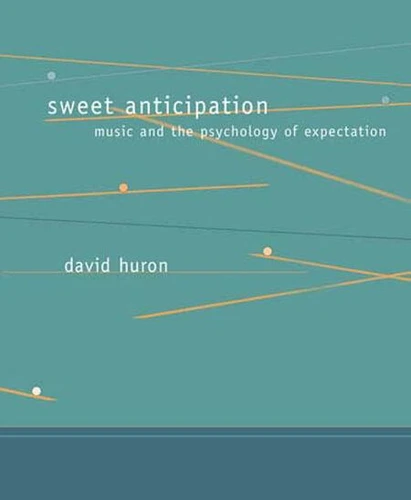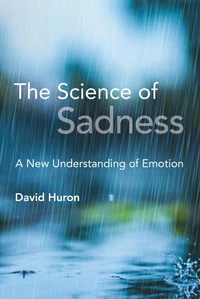Sweet Anticipation. Music and the Psychology of Expectation
Par :Formats :
Disponible dans votre compte client Decitre ou Furet du Nord dès validation de votre commande. Le format ePub protégé est :
- Compatible avec une lecture sur My Vivlio (smartphone, tablette, ordinateur)
- Compatible avec une lecture sur liseuses Vivlio
- Pour les liseuses autres que Vivlio, vous devez utiliser le logiciel Adobe Digital Edition. Non compatible avec la lecture sur les liseuses Kindle, Remarkable et Sony
- Non compatible avec un achat hors France métropolitaine
 , qui est-ce ?
, qui est-ce ?Notre partenaire de plateforme de lecture numérique où vous retrouverez l'ensemble de vos ebooks gratuitement
Pour en savoir plus sur nos ebooks, consultez notre aide en ligne ici
- Nombre de pages480
- FormatePub
- ISBN978-0-262-30330-9
- EAN9780262303309
- Date de parution25/01/2008
- Protection num.Adobe DRM
- Taille5 Mo
- Infos supplémentairesepub
- ÉditeurBradford Books
Résumé
How does music evoke awe or spine-tingling chills? This pioneering study draws on cognitive science, evolutionary psychology, and music theory to understand the link between expectation and our emotions."A fascinating journey into the inner workings of music and how it tickles the human mind." -NatureThe psychological theory of expectation that David Huron proposes in Sweet Anticipation grew out of his experimental efforts to understand how music evokes emotions.
These efforts evolved into a general theory of expectation that will prove informative to readers interested in cognitive science and evolutionary psychology as well as those interested in music. The book describes a set of psychological mechanisms and illustrates how these mechanisms work in the case of music. Huron proposes that emotions evoked by expectation involve 5 functionally distinct response systems:.
Reaction responses, which engage defensive reflexes. Tension responses, where uncertainty leads to stress. Prediction responses, which reward accurate prediction. Imagination responses, which facilitate deferred gratification. Appraisal responses, which occur after conscious thought is engagedFor real-world events, these 5 response systems typically produce a complex mixture of feelings. The book identifies some of the aesthetic possibilities afforded by expectation, and shows how common musical devices (such as syncopation, cadence, meter, tonality, and climax) exploit the psychological opportunities.
The theory also provides new insights into the physiological psychology of awe, laughter, and spine-tingling chills. Huron traces the psychology of expectations from the patterns of the physical/cultural world through imperfectly learned heuristics used to predict that world to the phenomenal qualia we experienced as we apprehend the world.
These efforts evolved into a general theory of expectation that will prove informative to readers interested in cognitive science and evolutionary psychology as well as those interested in music. The book describes a set of psychological mechanisms and illustrates how these mechanisms work in the case of music. Huron proposes that emotions evoked by expectation involve 5 functionally distinct response systems:.
Reaction responses, which engage defensive reflexes. Tension responses, where uncertainty leads to stress. Prediction responses, which reward accurate prediction. Imagination responses, which facilitate deferred gratification. Appraisal responses, which occur after conscious thought is engagedFor real-world events, these 5 response systems typically produce a complex mixture of feelings. The book identifies some of the aesthetic possibilities afforded by expectation, and shows how common musical devices (such as syncopation, cadence, meter, tonality, and climax) exploit the psychological opportunities.
The theory also provides new insights into the physiological psychology of awe, laughter, and spine-tingling chills. Huron traces the psychology of expectations from the patterns of the physical/cultural world through imperfectly learned heuristics used to predict that world to the phenomenal qualia we experienced as we apprehend the world.
How does music evoke awe or spine-tingling chills? This pioneering study draws on cognitive science, evolutionary psychology, and music theory to understand the link between expectation and our emotions."A fascinating journey into the inner workings of music and how it tickles the human mind." -NatureThe psychological theory of expectation that David Huron proposes in Sweet Anticipation grew out of his experimental efforts to understand how music evokes emotions.
These efforts evolved into a general theory of expectation that will prove informative to readers interested in cognitive science and evolutionary psychology as well as those interested in music. The book describes a set of psychological mechanisms and illustrates how these mechanisms work in the case of music. Huron proposes that emotions evoked by expectation involve 5 functionally distinct response systems:.
Reaction responses, which engage defensive reflexes. Tension responses, where uncertainty leads to stress. Prediction responses, which reward accurate prediction. Imagination responses, which facilitate deferred gratification. Appraisal responses, which occur after conscious thought is engagedFor real-world events, these 5 response systems typically produce a complex mixture of feelings. The book identifies some of the aesthetic possibilities afforded by expectation, and shows how common musical devices (such as syncopation, cadence, meter, tonality, and climax) exploit the psychological opportunities.
The theory also provides new insights into the physiological psychology of awe, laughter, and spine-tingling chills. Huron traces the psychology of expectations from the patterns of the physical/cultural world through imperfectly learned heuristics used to predict that world to the phenomenal qualia we experienced as we apprehend the world.
These efforts evolved into a general theory of expectation that will prove informative to readers interested in cognitive science and evolutionary psychology as well as those interested in music. The book describes a set of psychological mechanisms and illustrates how these mechanisms work in the case of music. Huron proposes that emotions evoked by expectation involve 5 functionally distinct response systems:.
Reaction responses, which engage defensive reflexes. Tension responses, where uncertainty leads to stress. Prediction responses, which reward accurate prediction. Imagination responses, which facilitate deferred gratification. Appraisal responses, which occur after conscious thought is engagedFor real-world events, these 5 response systems typically produce a complex mixture of feelings. The book identifies some of the aesthetic possibilities afforded by expectation, and shows how common musical devices (such as syncopation, cadence, meter, tonality, and climax) exploit the psychological opportunities.
The theory also provides new insights into the physiological psychology of awe, laughter, and spine-tingling chills. Huron traces the psychology of expectations from the patterns of the physical/cultural world through imperfectly learned heuristics used to predict that world to the phenomenal qualia we experienced as we apprehend the world.
















